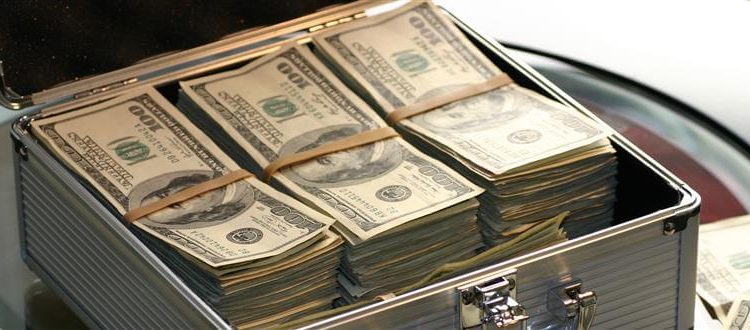Are Pay-to-Publish Policies Making Chinese Scientists Rich?

In China, institutions pay authors to publish their work in top journals. We recently wrote a piece about this practice. Many Chinese scholars get cash bonuses to publish peer-reviewed papers in Science, Nature, and other top research journals. These published works in international journals bring prestige to universities and countries. That is why the pay-to-publish system exists.
The Pay-to-Publish Controversy
Scientists get paid to publish in other countries, too. A recent article in Science magazine showed cash bonuses in many countries. Institutions in Qatar, Taiwan, Oman, and the United States all pay researchers for publications. In some countries, cash bonuses are over $5,000; however, China pays the most. New data from Chinese scientists show that the highest cash amounts paid to Chinese scientists equal $165,000!
Wei Quan, Bikun Chen, and Fei Shu published a preprint article about the pay-to-publish system in China. They researched 100 institutions in China and sought to know if cash bonuses were increasing. Read on to learn what they found out!
New Results from Chinese Universities
Universities might not want people to know how much they pay in cash bonuses. So how did the researchers get their data? They selected 100 Chinese universities that posted cash bonuses on their websites. They used a Chinese search site called Baidu to find this information. Then they compared recent pay-to-publish policies with policies dating back to 1999.
The results were interesting. Universities paid large bonuses to publish in Nature and Science. In 2016, the average bonus for these two journals was $43,783! For comparison, the median household income in the United States is $53,657. A Chinese author who publishes his work in Nature gets almost as much! These bonuses are staggering.
However, those journals are very selective. Wei, Bikun, and Fei found that awards for other journals, like PLOS One and MIS Quarterly, were lower. The average for MIS Quarterly was $2,938 in 2016. Therefore, most Chinese scientists are not getting rich from cash awards.
Publish or Perish, the Matthew Effect, and Future Scientists
Except for articles in Nature and Science, cash bonuses around the world are similar to those in China. For example, in the U.S., Weber State University offers $6,000 for top publications.
So, China may not be so different from other places. It turns out that cash awards for peer-reviewed articles are common. However, is this a good idea? Wei et al. have some thoughts about this. They claim that pay-to-publish leads to the “Matthew Effect”, which states that the rich get richer and the poor get poorer. In research publishing, this means that successful scholars get to be more successful. At the same time, scholars who have not had much luck will probably not have more luck later. This is because scientists who publish get money, and that money helps them do more work and get more bonuses.
Wei at al. said, in their conclusion, “Publish or Impoverish.” or more dramatically, “Publish or Perish.” Though this strategy might be good for scientific progress, it might be bad for students. This is because scholars must focus on getting papers published in top journals. Therefore, they might not have time to think about being good educators. In the end, this will harm science. The next generation of researchers may not be well trained since their professors are too busy focusing on publishing to be effective teachers. In fact, some scholars are already worried about the aging research community in the U.S.
How Will Pay-to-Publish Change the Research Community?
After learning about large cash bonuses from China and other countries, what will happen? Wei et al. state that China has been giving cash awards for 20 years and this is not a new practice. However, now people will talk about it. Here are some things that might change as a result:
- Researchers may choose to seek jobs at institutions that pay cash bonuses.
- More institutions might offer cash bonuses, and they might choose to make their bonuses public. This could help mid-tier universities compete.
- Small institutions with limited cash might start giving other kinds of incentives. If so, they might attract better researchers.
- Governments might provide more cash bonuses to level the playing field.
- Journal editors might forbid cash bonuses to level the playing field.
There are a number of problems with available data on cash awards. For example, Wei et al. only looked at a few journals, shortlisted institutions with public data on cash awards and only considered one country. No matter what happens, in the next few years, we are sure to find out more about publication incentives in academia.
Have you received a cash bonus to publish? Would you take a job because of publication incentives? Does the “Publish or Perish” motto make you feel pressured? Do you have professors who are too busy for you because they are worried about publishing? Leave us a comment and let us know what you think!








